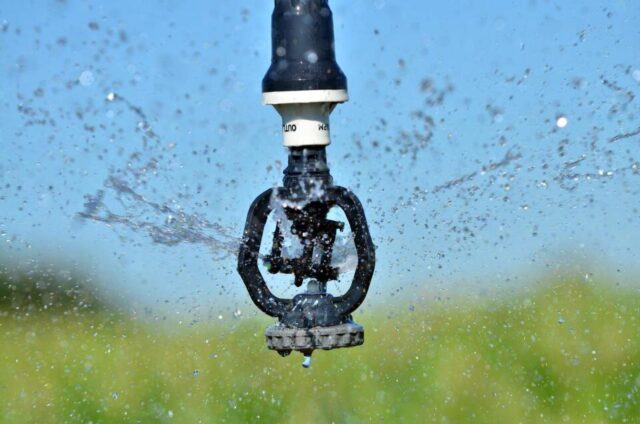Agri SA remains concerned that the draft regulations, as published, are not consistent with the relevant provisions of the National Water Act, the Equality Act and the Constitution.
IF THE water use licence applications, amendment and appeals regulations were passed as published, they would have a potentially catastrophic impact on agriculture and the country’s food security, Agri SA has warned.
It was objecting to the regulations, which were published in May.
Janse Rabie, the legal and policy executive at Agri SA, said given the legal and food security implications of the regulations, it was essential that they were reviewed and substantially amended.
“Subsequent to the publication of the draft regulations, on June 15 2023, Agri SA had a productive meeting with the Department of Water and Sanitation where officials clarified that the new transformation requirements would only apply with respect to the 1.5% of water resources in South Africa which have not already been allocated. The regulations are also not intended to apply to applications for the renewal of existing water use licences, or to the water use licence applications, which will arise out of compulsory licensing,” Rabie said.
Agri SA welcomed this clarification and had included these parameters in its suggested reformulation of the regulations.
“Notwithstanding this important clarification, Agri SA remains concerned that the draft regulations, as published, are not consistent with the relevant provisions of the National Water Act, the Equality Act, and the Constitution,” it said.
In its submission, the agricultural organisation said that it welcomed the engagement of the Department of Water and Sanitation with the sector. It would work with them to establish a water licensing regulatory framework that respected the Constitution and protected food security in order to avert the lengthy litigation that would result if the regulations were enacted in their current form.
Agri SA said no provision in the National Water Act empowered the minister to make regulations prescribing substantive requirements for licence applications or for the determination of licence applications.
Even if such a power was inferred, the act provided that, in issuing a licence, the responsible authority must take into account all relevant factors.
“This includes a list of 11 factors including efficient and beneficial use of water in the public interest, the socio-economic impact of water use, and investments already made by a water user.
“The need to redress past racial and gender discrimination is one of these 11 factors. By law, when determining an application for a water licence, the responsible authority must strike a reasonable balance between all the factors.”
Furthermore, the arbitrary and thus legally impermissible nature of racial quotas had already been established by court judgments, Agri SA said.
“As the draft regulations do not allow for any element of discretion, they are so rigid as to be indistinguishable from a quota, and therefore invalid.”
Rabie said a further concern was that the draft regulations reduced transformation to black ownership.
“Codes of practice issued under the B-BBEE Act utilise a scorecard which consists of five key elements, with ownership being only one. The other four are management control, skills development, enterprise and supplier development, and socio-economic development. These elements should be taken into account by the department,” he said.
The legal and policy executive said the inclusion of women as a previously disadvantaged group should also be taken into account. “Currently, only racial transformation goals are included in the draft regulations,” Rabie said.
Agri SA said it was all too aware of the historical imbalances that prevailed in the farming sector today, but the sector must achieve equality within the rule of law.
“Agri SA has, therefore, submitted a proposed reformulation of the draft regulations that take the above-mentioned considerations into account. It is essential that the effort to build an inclusive agricultural sector does not undermine the country’s food production. South Africa is a food-secure country and must remain one,” the organisation said.
In May, Theo Boshoff, the CEO at the Agricultural Business Chamber (Agbiz) told Business Report that transformation included several aspects including the five elements contained in the country’s over-arching transformation guideline, the BBBEE Act.
He said black shareholding could not be the only factor to measure a legal entity’s transformation nor could it be the overriding criteria in the awarding of water licences. Section 27 of the National Water Act contained a whole list of factors that must be considered, he said.
– BUSINESS REPORT








